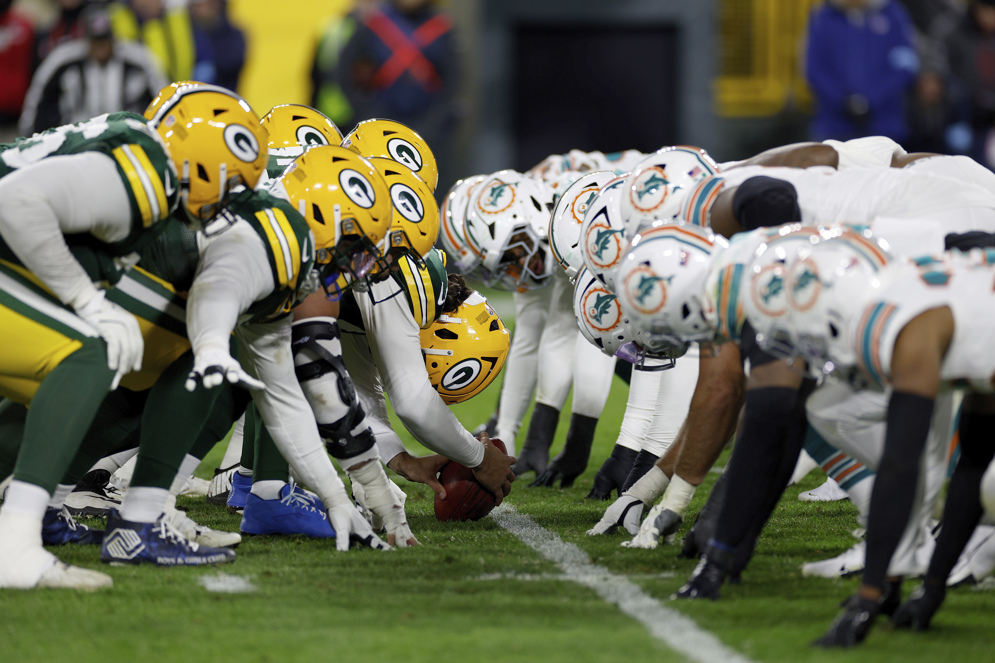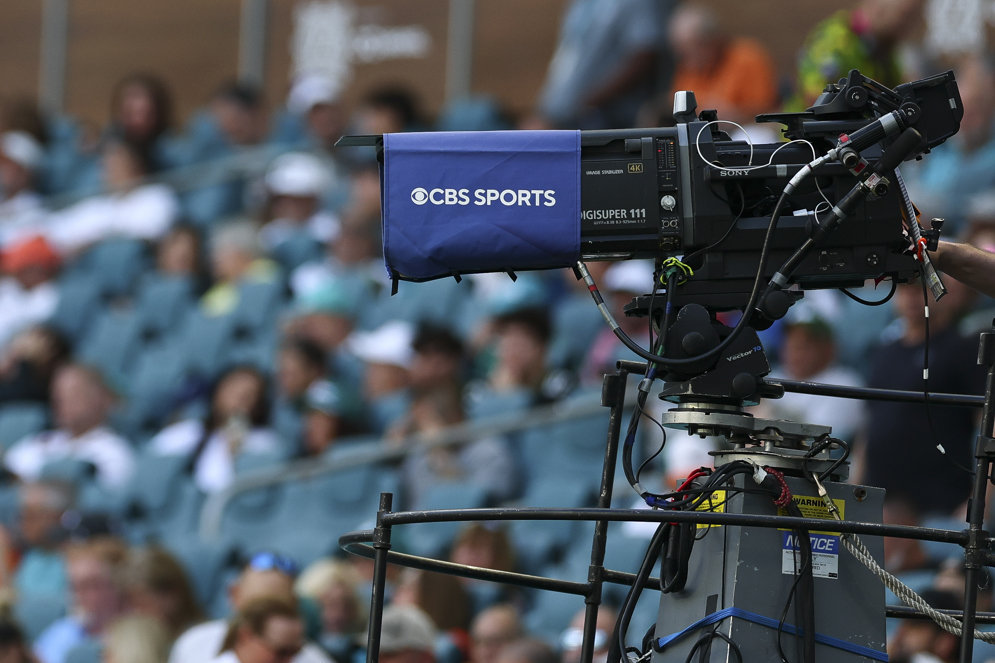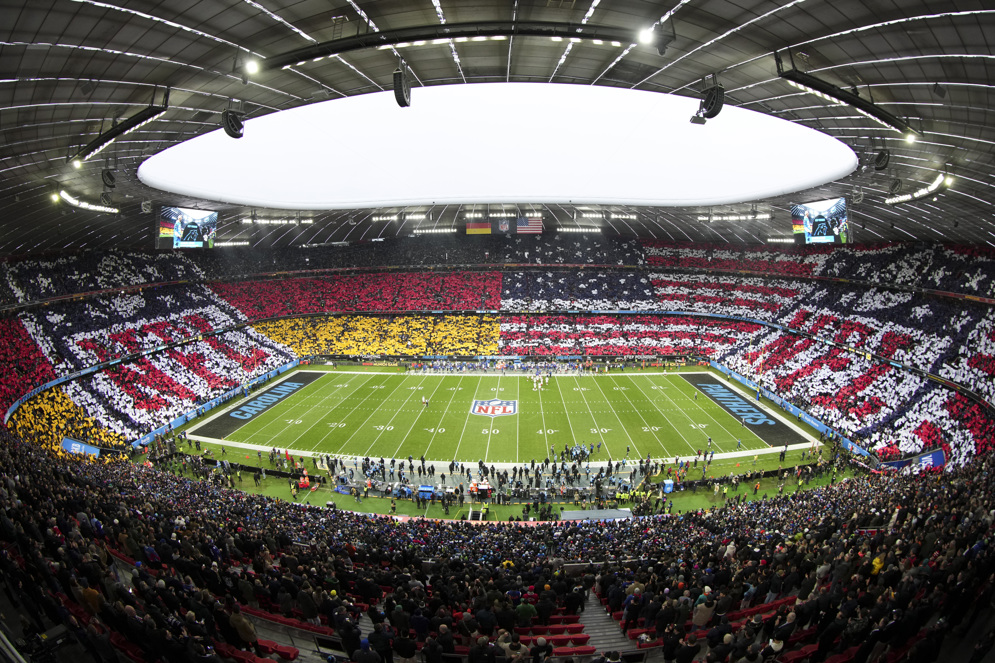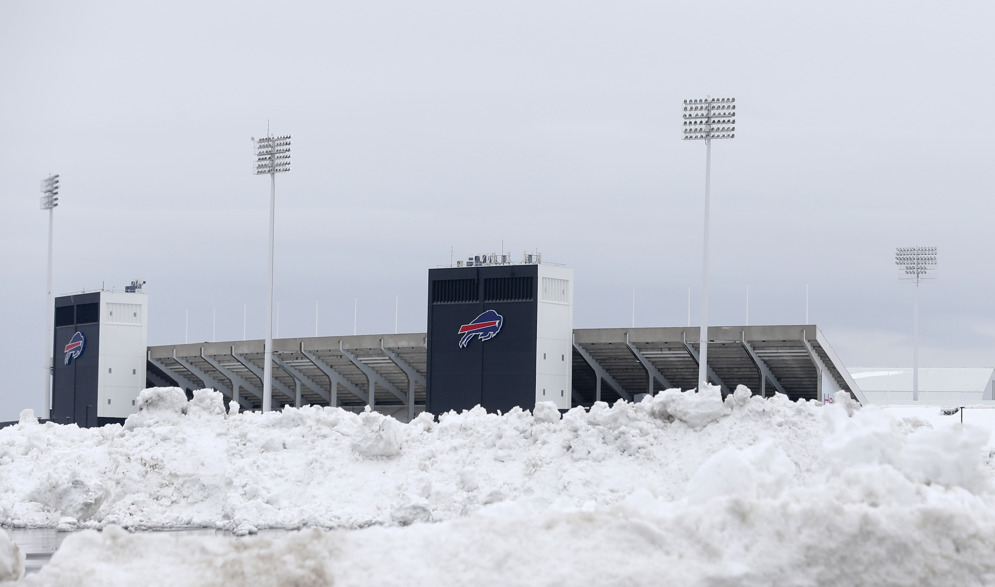Creating the NFL Schedule
It takes thousands of computers and a team of NFL executives to create the NFL’s 272-game masterpiece.
It takes thousands of computers and a team of NFL executives to create the NFL’s 272-game masterpiece.
The NFL schedule makers — led by Executive Vice President of Media Distribution Hans Schroeder, Vice President of Broadcasting Planning Michael North, and Vice President of Broadcast Operations Onnie Bose — must consider the fans, the league’s broadcast partners and many other factors when building the 272-game schedule that spans the 18 weeks of the NFL season and showcases the league’s best matchups and talent.
The schedule makers will have to work around events that are already scheduled to take place in or near NFL stadiums — events that may compete with the games, put undue stress on the playing surface, or create traffic or logistical nightmares. The league begins collecting information from the clubs in January about any events that may create scheduling conflicts.
The schedulers are also constrained by internal factors. A formula determines each team’s opponents every year, and a rotating schedule ensures that every team plays each of the other 31 at least once in a four-year period.
It takes thousands of cloud-based computers to produce thousands of possible schedules — a process that sets the stage for the schedule makers to begin the arduous task of picking the best possible one.

The NFL's scheduling formula ensures that all teams will play every team from every division in the other conference once every four years. (AP/Scott Boehm)
The league’s 32 teams are split into two conferences — the American Football Conference (AFC) and the National Football Conference (NFC). The 16 teams in each conference are split into the East, North, South and West divisions; every division has four teams.
Every team will play 17 regular-season games with one bye week. Teams will alternate seasons where they host nine regular-season games and one preseason game, or eight regular-season games and two preseason games. The NFC will have eight regular season home games in the 2025 season.
Here’s a breakdown of how each team’s opponents are set:

The league’s six broadcast partners (CBS, Fox, NBC, NFL Network, ESPN and Prime Video) all want each week’s best matchups to air on their networks so they can attract the largest audiences. (AP/ Aaron M. Sprecher)
The NFL's marquee matchups often are scheduled to air during the week’s premier time slots — Thursday, Sunday or Monday nights or the late game on Sunday afternoons. The league typically schedules the Super Bowl champion at home for the Thursday night game that kicks off the new season.
This season, the league also scheduled six Saturday games – two each during Weeks 16, 17, and 18.
Most NFL games are played on Sunday afternoons, with early games starting at 1:00 p.m. ET and the late games starting at either 4:05 p.m. ET or 4:25 p.m. ET, depending on whether the game is part of a network doubleheader.
The Sunday afternoon games are broadcast on CBS and FOX; for the third straight year, games do not have a predetermined network assignment based on conference affiliation of participating teams. This allows the scheduling team more flexibility to build Sunday afternoon windows across CBS and FOX.
The schedule will feature two double-doubleheaders on CBS and FOX and every market will see four Sunday afternoon games in Weeks 15 and 18. Over Weeks 1–14, 16-17, FOX and CBS will each have eight doubleheaders. In those weeks, one network will show games in both Sunday afternoon time slots, while the other will air only one game in either of the two time slots. Doubleheader weeks generally alternate between networks, but not always. It is possible for one network to have doubleheaders on consecutive weeks, but not three weeks in a row.
Doubleheader weeks generally alternate between networks, but not always. It is possible for one network to have doubleheaders on consecutive weeks, but not three weeks in a row.
NBC will televise all Sunday night games in Weeks 1-18, as well the Thursday night Kickoff game in Philadelphia in Week 1 and a Cincinnati at Baltimore Thanksgiving night matchup (8:20 p.m. ET).
Thursday Night Football will air exclusively on Prime Video, kicking off its slate in Week 2. Prime Video will broadcast 15 Thursday Night Football games between Weeks 2-17 (excluding Thanksgiving night and including Christmas) and exclusively stream the third annual NFL Black Friday game. ESPN or ABC will air all Monday night games in Weeks 1-17.

In the 2024 season, the New York Giants and the Carolina Panthers faced off at Allianz Arena in Munich. (AP/Sean Ryan)
In 2007, the NFL added a new twist to the scheduling process: the NFL International Series.
Each team is guaranteed to play internationally at least once every eight years. For the 2025 season, the NFL will play seven regular season games outside of the U.S. – the most regular season international games to date, including historic first games in Berlin, Dublin and Madrid.
The 2025 international schedule kicks off on September 5th in São Paulo, Brazil. Additionally, the schedule will once again feature three games in London and one in Munich. Scheduling these matchups presents a challenge for the schedule makers, which is why setting the International Series games is a particular focus early in the process.
Once the international schedule is set, schedule makers then look at a three-week window around the international games to try to find ways to make long travel less of a burden on the teams. This includes where a team plays in the week prior to an international game and whether or not they have a bye week following the game.

(AP/Aaron M. Sprecher)
In 2006, the NFL introduced a “flexible scheduling” procedure for NBC’s “Sunday Night Football.” Flex scheduling ensures that the Sunday night game will feature a quality primetime matchup.
During the 2025 season, flexible scheduling for Sunday night may be used twice between Weeks 5–10 and as needed in Weeks 11–17. Monday Night Football games are eligible for flex scheduling during weeks 12-17 and flex scheduling may be used for Thursday Night Football in Weeks 13-17. Sunday afternoon games may also be moved between the 1 p.m. ET, 4:05 p.m. ET, or 4:25 p.m. ET time slots.
As in previous seasons, flex scheduling will also come into play for Week 18 games – including Saturday, Sunday afternoon, and Sunday night matchups – which are all scheduled at the end of Week 17, once the playoff implications are known. Two games will be played on Saturday (4:30 p.m. ET and 8 p.m. ET) with the remainder to be played on Sunday afternoon (1 p.m. ET and 4:25 p.m. ET) and one matchup to be played on Sunday night (8:20 p.m. ET).
These matchups are specially selected after the completion of Week 17 to ensure maximum excitement and often feature teams fighting for division titles or final playoff berths. Flexible scheduling allows the league to spotlight the most compelling games, giving fans must-see football as the postseason picture comes into focus.

A rare November blizzard in Buffalo in 2014 prompted the league to move the Bills’ Week 12 home game against the New York Jets — originally a Sunday game in Orchard Park — to Monday of the same week in Detroit’s Ford Field.
Each team has one bye week assigned and many teams have a specific number of cross-country games scheduled (as determined by the standard formula at the conclusion of the previous season), stadium conflicts and other operational obstacles in their schedule. The scheduling teams aim to balance these operational elements while still trying to maximize fan viewership.
The process is challenging, and there may be no such thing as a perfect schedule, but the schedule makers consistently try to provide the NFL’s fans and broadcast partners with a compelling and entertaining slate of games week after week.